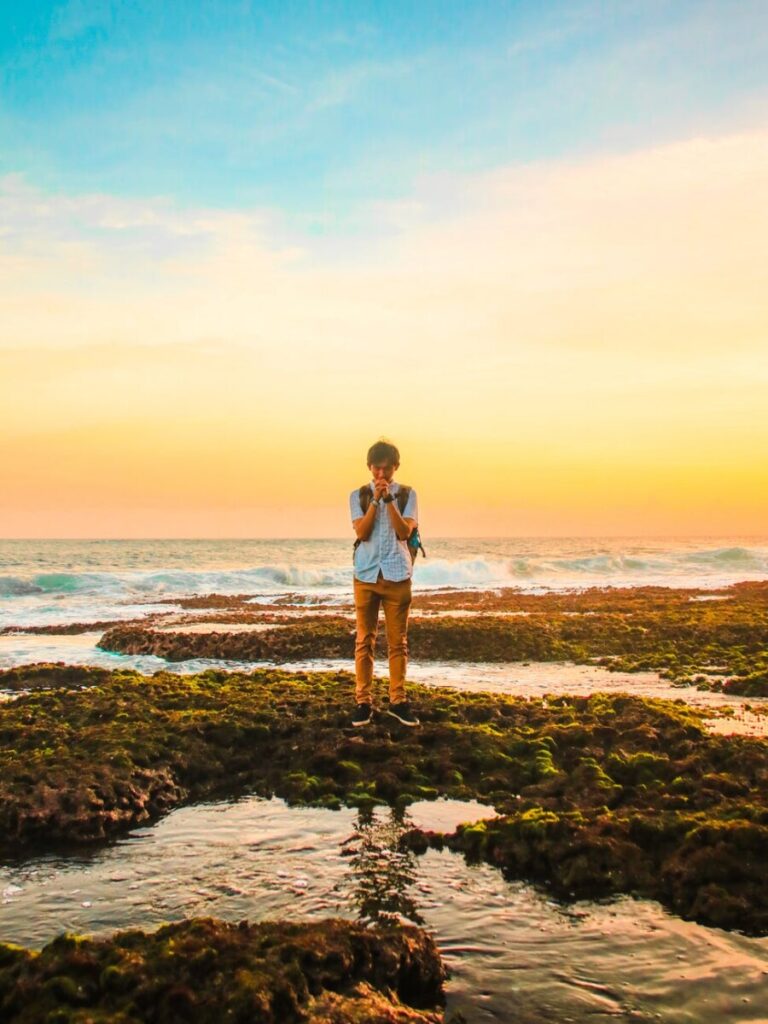How Long Does It Take To Read The Bible
One question a lot of Christians ask is “How long does it take to read the Bible”
Imagine yourself holding the weight of the Bible in your hands, its pages filled with stories, wisdom, and guidance.
You may have heard others talk about the importance of reading the Bible, but have you ever wondered how long it takes to fully immerse yourself in its teachings?
The answer may surprise you. As you embark on this journey, discover the time it takes to uncover the depths of the Bible’s message, and uncover tips to make the most of your experience.
So, are you ready to embark on a journey of self-discovery and enlightenment?
Key Takeaways
- The Bible is divided into the Old Testament and the New Testament.
- On average, it takes about 70 hours to read the entire Bible.
- Utilizing a reading plan or schedule can help stay organized and consistent.
- Different formats of the Bible, such as audio Bibles and study Bibles, can enhance the reading experience.
Introduction

I must admit that I believe every single person who calls themselves a Christian should read the entire Bible from Cover to Cover at least once in their lifetime.
The Bible is a love letter from God to us and when we receive a love letter from someone we love, we make sure and read the entire letter.
I never used to come to church until 1 day I picked up the NIV version of the Bible and I read it a little each day for around an entire year.
That 1 discipline I did during that year is what changed my life and got me to where I am today.
Today I am asked by a lot of people to assist them in Ministry related activities and it all started because 1 day I decided to read the Bible from start to finish.
In the early 13th century, the Archbishop of Canterbury Stephen Langton divided the books of the Bible into chapters. This made referencing specific passages easier, but it also provided an easy way to calculate the total length of the biblical text. Soon after Langton's division, a Benedictine monk named Hugo of St Cher took on the challenge of reading the entire Bible from start to finish. Determined to read Scripture in its entirety, Hugo devoted himself fully to the task. He read day and night, slept little, and even ate with the Bible open in front of him. After months of tireless reading, Hugo finally finished reading the complete biblical text from Genesis to Revelation—a feat thought near impossible in the time before modern tools like word counts and reading trackers. While we don't know exactly how many hours Hugo spent absorbed in Scripture, his epic read-through revealed just how lengthy the Bible's narrative could be. This medieval monk's ambitious effort to digest the whole of God's word reminds us that getting through the Bible requires real commitment, though chapter divisions have quickened the pace of reading since Hugo's day. As we'll see, finishing even at a brisk clip takes most people far longer than they might guess.
If you’re wondering how long it takes to read the Bible, let’s start with a brief introduction. The Bible, a sacred text for millions of people around the world, is a collection of religious writings that hold immense significance. Comprising of 66 books, the Bible is divided into two main sections: the Old Testament and the New Testament.
The Old Testament contains ancient Hebrew scriptures, including historical accounts, poetry, and prophetic writings. It covers the creation of the world, the stories of the patriarchs, the exodus from Egypt, and the establishment of Israel as a nation.
The New Testament focuses on the life and teachings of Jesus Christ, the founder of Christianity, and includes the four Gospels, Acts of the Apostles, letters from early Christian leaders, and the book of Revelation.
How Long Does it Take to Read the Bible?
It can be completed in about 70 hours. Of course, this estimate can vary depending on factors such as reading speed, comprehension level, and the specific version of the Bible being read. It’s important to note that this average is based on reading the entire Bible from cover to cover, including all the books and chapters.
To put it into perspective, if you were to read the Bible for one hour every day, it would take you approximately 70 days to finish.
If you prefer to read for longer periods of time, let’s say two hours a day, you could complete it in about 35 days.
However, it isn’t uncommon for individuals to take longer than the average time to read the Bible. Some people may choose to read it at a slower pace, allowing for deeper reflection and study, while others may have busy schedules that limit the amount of time they can dedicate to reading.
Ultimately, the time it takes to read the Bible is a personal choice. Whether you decide to read it in one go or spread it out over a longer period, what matters most is the meaning and understanding you derive from its timeless words.
Tips for Reading the Bible More Efficiently

If you want to read the Bible more efficiently, there are 5 tips you can follow.
1. Use a reading plan/schedule
To read the Bible efficiently, consider utilizing a reading plan or schedule. Having a plan in place can help you stay organized and consistent in your reading.
There are various reading plans available that can cater to your preferences and goals. Some plans divide the Bible into daily readings, allowing you to cover the entire Bible in a year or less. Others focus on specific themes or books, providing a more in-depth study of certain aspects of the Bible.
2. Set a daily page or chapter goal
Consider setting a daily goal for the number of pages or chapters you aim to read when seeking to read the Bible more efficiently. This will help you stay focused and make consistent progress in your reading.
Here are some tips to help you set and achieve your daily reading goal:
- Start small: Begin with a realistic goal that you know you can achieve. Gradually increase the number of pages or chapters as you become more comfortable with your reading routine.
- Be consistent: Set aside a specific time each day to read the Bible. Whether it’s in the morning, during lunch breaks, or before bedtime, consistency is key to developing a habit.
- Monitor your progress: Keep track of your daily reading and celebrate your milestones. This will provide motivation and encouragement to continue reading.
3. Try different Bible Formats
As you explore ways to read the Bible more efficiently, it may be helpful to explore different formats of the Bible. Trying out different Bible formats can make your reading experience more engaging and enjoyable.
One format you could consider is an audio Bible. Listening to the Bible being read aloud can be a great option if you prefer a more auditory learning style or if you have a busy schedule and can listen while doing other tasks.
Another format to try is a study Bible. Study Bibles include additional notes, commentary, and explanations to help you better understand the text. This can be particularly useful if you’re new to reading the Bible or if you want to dive deeper into specific passages.
4. Focus techniques for Comprehension
Improve your comprehension and read the Bible more efficiently with these focus techniques:
- Set a specific time and place: Establishing a regular reading routine helps you focus and creates a dedicated space for your Bible study.
- Eliminate distractions: Find a quiet environment, turn off your phone, and minimize interruptions to maintain your concentration.
- Engage actively with the text: Take notes, underline key passages, and ask yourself questions to stay engaged and deepen your understanding.
5. Take notes and highlight meaningful passages
Start by taking notes and highlighting meaningful passages. This simple practice can greatly enhance your reading experience and help you retain important information.
As you read through the text, keep a notebook or journal nearby to jot down any insights, questions, or personal reflections that arise. By actively engaging with the material and recording your thoughts, you create a personalized record of your spiritual journey.
Additionally, highlighting meaningful passages can serve as visual reminders of key teachings or verses that resonate with you. This technique allows you to easily revisit and reflect on those passages later on.
Staying Motivated

How can you maintain motivation while reading the Bible? It’s natural to feel overwhelmed or lose interest when tackling such a significant book. However, with a few strategies, you can stay motivated throughout your journey:
- Set specific goals: Break down your reading into manageable chunks. Set daily or weekly goals to ensure steady progress. For example, aim to read a certain number of chapters each day or complete a specific book within a week.
- Find a reading plan: Many resources offer Bible reading plans that provide structure and guidance. These plans can help you stay on track and maintain motivation by giving you a clear roadmap to follow. Choose a plan that aligns with your goals and preferences.
- Join a study group: Engaging with others who are also reading the Bible can be incredibly motivating. Join a study group or find a community where you can discuss your insights, ask questions, and share experiences. Connecting with others can provide encouragement and accountability.
Getting the Most Out of Your Bible Reading
Maximize your Bible reading experience by implementing effective strategies that foster deeper understanding and personal growth.
To get the most out of your Bible reading, it’s important to approach it with intentionality and a desire to truly engage with the text.
Furthermore, take the time to reflect on what you have read and to journal your thoughts and reflections. This practice allows for personal growth and helps you to apply the lessons learned from the Bible to your everyday life.
Lastly, seek opportunities to discuss what you have read with others.
Frequently Asked Questions
Are There Any Specific Versions or Translations of the Bible That Are Recommended for Faster Reading?
There are no specific versions or translations of the Bible that are recommended for faster reading. It ultimately depends on your reading speed and comprehension. Choose a version that resonates with you and enjoy the journey. I personally love the NIV Version of the Bible
Is It Necessary to Read the Entire Bible From Start to Finish, or Can I Read Specific Sections?
You can choose to read specific sections of the Bible instead of reading the entire book from start to finish. It’s not necessary to read it cover to cover if you prefer a more focused approach.
What Are Some Strategies for Dealing With Difficult or Confusing Passages in the Bible?
When dealing with difficult or confusing passages in the Bible, take your time to reflect and seek guidance. Consider consulting commentaries, joining a Bible study group, or talking with a knowledgeable mentor.
Is It Common for People to Take Breaks or Pause Their Bible Reading Journey, and if So, How Can They Easily Resume Their Reading After a Break?
Taking breaks in your Bible reading journey is common. To easily resume, bookmark your page or use a Bible app with a reading plan. Set a reminder to make it a habit and pick up where you left off.
Conclusion
So, how long does it take to read the Bible? On average, it would take around 70 hours to read the entire Bible out loud. That’s equivalent to binge-watching about 35 movies!
However, don’t let the time commitment discourage you. By implementing efficient reading strategies and staying motivated, you can make the most out of your Bible reading experience.
Remember, it’s not about how quickly you finish, but about the personal growth and spiritual insight you gain along the way.







